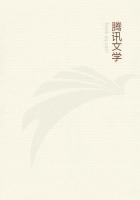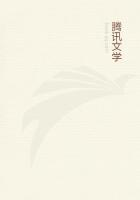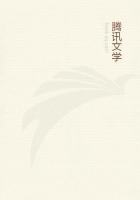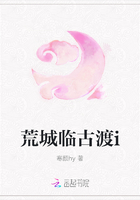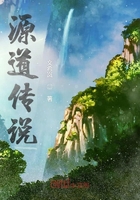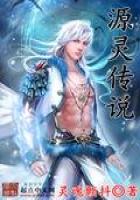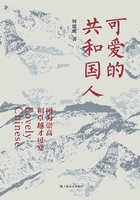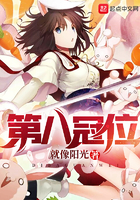I CAN remember my Uncle Seryozha (Sergei) from my earliest childhood. He lived at Pirogovo, twenty miles from Yasnaya, and visited us often.
As a young man he was very handsome. He had the same features as my father, but he was slenderer and more aristocratic-looking.
He had the same oval face, the same nose, the same intelligent gray eyes, and the same thick, overhanging eyebrows. The only difference between his face and my father's was defined by the fact that in those distant days, when my father cared for his personal appearance, he was always worrying about his ugliness, while Uncle Seryozha was considered, and really was, a very handsome man.
This is what my father says about Uncle Seryozha in his fragmentary reminiscences:
"I and Nitenka [11] were chums, Nikolenka I revered, but Seryozha I admired enthusiastically and imitated; I loved him and wished to be he.
[11] Dmitry. My father's brother Dmitry died in 1856;
Nikolai died September 20, 1860.
"I admired his handsome exterior, his singing,--he was always a singer,--his drawing, his gaiety, and above all, however strange a thing it may seem to say, the directness of his egoism. [12]
[12] That is to say, his eyes went always on the straightest road to attain satisfaction for himself.
"I always remembered myself, was aware of myself, always divined rightly or wrongly what others thought about me and felt toward me; and this spoiled the joy of life for me. This was probably the reason why I particularly delighted in the opposite of this in other people; namely, directness of egoism. That is what I especially loved in Seryozha, though the word 'loved' is inexact.
"I loved Nikolenka, but I admired Seryozha as something alien and incomprehensible to me. It was a human life very beautiful, but completely incomprehensible to me, mysterious, and therefore especially attractive.
"He died only a few days ago, and while he was ill and while he was dying he was just as inscrutable and just as dear to me as he had been in the distant days of our childhood.
"In these latter days, in our old age, he was fonder of me, valued my attachment more, was prouder of me, wanted to agree with me, but could not, and remained just the same as he had always been; namely, something quite apart, only himself, handsome, aristocratic, proud, and, above all, truthful and sincere to a degree that I never met in any other man.
"He was what he was; he concealed nothing, and did not wish to appear anything different."
Uncle Seryozha never treated children affectionately; on the contrary, he seemed to put up with us rather than to like us. But we always treated him with particular reverence. The result, as I can see now, partly of his aristocratic appearance, but chiefly because of the fact that he called my father "Lyovotchka" and treated him just as my father treated us.
He was not only not in the least afraid of him, but was always teasing him, and argued with him like an elder person with a younger. We were quite alive to this.
Of course every one knew that there were no faster dogs in the world than our black-and-white Darling and her daughter Wizard.
Not a hare could get away from them. But Uncle Seryozha said that the gray hares about us were sluggish creatures, not at all the same thing as steppe hares, and neither Darling nor Wizard would get near a steppe hare.
We listened with open mouths, and did not know which to believe, papa or Uncle Seryozha.
Uncle Seryozha went out coursing with us one day. A number of gray hares were run down, not one, getting away; Uncle Seryozha expressed no surprise, but still maintained that the only reason was because they were a poor lot of hares. We could not tell whether he was right or wrong.
Perhaps, after all, he was right, for he was more of a sportsman than papa and had run down ever so many wolves, while we had never known papa run any wolves down.
Afterward papa kept dogs only because there was Agafya Mikhailovna to be thought of, and Uncle Seryozha gave up sport because it was impossible to keep dogs.
"Since the emancipation of the peasants," he said, "sport is out of the question; there are no huntsmen to be had, and the peasants turn out with sticks and drive the sportsmen off the fields. What is there left to do nowadays? Country life has become impossible."
With all his good breeding and sincerity, Uncle Seryozha never concealed any characteristic but one; with the utmost shyness he concealed the tenderness of his affections, and if it ever forced itself into the light, it was only in exceptional circumstances and that against his will.
He displayed with peculiar clearness a family characteristic which was partly shared by my father, namely, an extraordinary restraint in the expression of affection, which was often concealed under the mask of indifference and sometimes even of unexpected harshness. In the matter of wit and sarca**, on the other hand, he was strikingly original.
At one period he spent several winters in succession with his family in Moscow. One time, after a historic concert given by Anton Rubinstein, at which Uncle Seryozha and his daughter had been, he came to take tea with us in Weavers' Row.[13]
[13] Khamsvniki, a street in Moscow.
My father asked him how he had liked the concert.
"Do you remember Himbut, Lyovotchka? Lieutenant Himbut, who was forester near Yasnaya? I once asked him what was the happiest moment of his life. Do you know what he answered?
"'When I was in the cadet corps,' he said, 'they used to take down my breeches now and again and lay me across a bench and flog me. They flogged and they flogged; when they stopped, that was the happiest moment of my life.' Well, it was only during the entr'actes, when Rubinstein stopped playing, that I really enjoyed myself."
He did not always spare my father.

